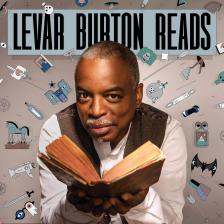Country Names and "The": The Ukraine or Ukraine

Ukraine has been in the news a lot lately, but if you’re a bit on the older side, you may remember that it used to be more common to call it “the Ukraine,” with that article in front: the Ukraine.
Have you ever wondered why some countries have “the” in the name and others don’t? Why is it the Philippines but simply Greece? Why is it the Netherlands, but simply India?
Is it really so simple that we just don’t add the definite article “the” to Greece and India?
Most countries don’t take a definite article, of course, and it sounds ridiculous when you add one to them: “the France,” “the Greece,” “the India.” It sounds silly!
But there are a handful of countries that do take definite articles, and there are two main patterns.
The Gambia
First, it seems that many countries whose names derive from important geographical features take a definite article. For example, “the Philippines” refers to the Philippine islands, “the Gambia” refers to the Gambia River, and “the Netherlands” literally means “the lowlands.” (For comparison, think about the names of geographical regions, such as “the Amazon” and “the Sahara.”)
Second, we have the United States of America and the United Kingdom, both of which take a definite article because the countries’ names describes their political organization. (This becomes clearer when you consider similar formations in many countries’ official names, such as “the Republic of China” [another name for Taiwan] or “the Russian Federation” or “the United Mexican States.”)
For most countries’ names in English, the presence or lack of a definite article is settled. But with a few countries, there’s still a debate about whether to use “the.”
(The) Ukraine
A handful of countries take definite articles, and there are two main patterns.
And that takes us back to (the) Ukraine. Both “the Ukraine” and “Ukraine” have been used in English, but “Ukraine” alone has been becoming more common, and “Ukraine” alone is AP style, so that is what you will see and hear in most news stories today.
It’s common to hear that the name comes from the word “Ukrayina,” which means “borderland.” Based on this etymology, the “geographical feature” rule we talked about could explain the presence of the definite article in “the Ukraine.” But there’s still some level of uncertainty about Ukraine’s etymology—some people believe it to be just an…













 If you love words and language, there’s a good chance you love a good story. And this show is full of amazing stories you won’t want to miss.
If you love words and language, there’s a good chance you love a good story. And this show is full of amazing stories you won’t want to miss.